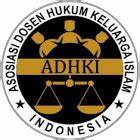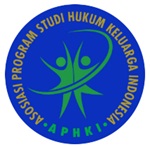Judicial Interpretation of Waqf Land Validity in Indonesia: A Comparative Analysis of Positive Law and Islamic Law through Case Decision No. 453/Pdt.G/2020/PA.Kdi
DOI:
https://doi.org/10.29240/berasan.v4i1.12639Keywords:
waqf, judicial decision, positive law, Islamic Law, Legal PluralismAbstract
Waqf has long functioned as both a religious act of worship and a social instrument that sustains community development in Muslim societies. Nevertheless, disputes frequently arise concerning the legal validity of waqf land, particularly when the procedures deviate from statutory regulations. This study examines the judicial reasoning behind Decision No. 453/Pdt.G/2020/PA.Kdi of the Religious Court of Kendari, which involved a conflict between two nazhirs claiming authority over the same waqf land. Employing normative legal research with a case approach and drawing on secondary legal materials, the study analyzes the intersection between Indonesian positive law—represented by Law No. 41/2004 on Waqf, Government Regulation No. 42/2006, and the Compilation of Islamic Law—and Islamic legal principles concerning waqf validity. The findings reveal that the court invalidated the first waqf due to the absence of an authentic deed, thereby prioritizing procedural formalities under statutory law. However, from the standpoint of Islamic law, the waqf remained valid as it fulfilled the essential pillars of waqf, namely waqif, mauquf, mauquf ‘alaih, and sighat. This divergence underscores the tension between formal legal certainty in positive law and the substantive validity emphasized in Islamic jurisprudence. The article contributes to scholarly debates on legal pluralism in Indonesia, offering insights into how judicial decisions navigate between state law and Islamic legal doctrines in resolving waqf disputes.
Downloads
References
Abdullah, Muhammad Abid. Hukum Wakaf. Jakarta: IIMaN Press, 2004.
Administrator. “Sejarah dan Perkembangan Wakaf,” BWI Perwakilan Kota Malang, 28 November 2019, diakses 5 September 2024. https://bwikotamalang.net/read/113405ddf4e2986367-Sejarah-dan-Perkembangan-Wakaf
Al-Bukhari, Abi Abdullah Muhammad bin Ismail. al-Jami' as-Shahih. Juz 2. Pakistan: al-Maktabah as-Salafiyyah, 1403 H.
Badan Wakaf Indonesia. “Dasar Hukum Wakaf,” diakses 24 Oktober 2023. https://www.bwi.go.id/dasar-hukum-wakaf/
Bahar, Muchlis. “Commercialization of Waqf Assets in the Perspective of Legislation and Islamic Law,” Legal Brief, no. 4(2022): 2219-2226 https://doi.org/10.35335/legal.v11i4.458
Bih, M. Mubasyar, dkk. Fikih Wakaf Lengkap Mengupas Problematika Wakaf, Masjid dan Kenaziran. Kediri: Lirboyo Press, 2018.
Departemen Agama RI. Al-Qur’an dan Terjemahannya. Jakarta: CV Indah Press, 2002.
Hidayat, Ahmad Riza, dkk. “Manajemen Wakaf Dalam Perspektif Hukum Islam dan Undang-Undang No. 41 Tahun 2004,” Filantropi: Jurnal Manajemen Zakat dan Wakaf, no. 1(2023): 14-26 https://doi.org/10.22515/finalmazawa.v4i1.8029
Ibrahim, Johni. Teori & Metodologi Penelitian Hukum Normatif. cet. III. Bayumedia Publishing: Malang, 2007
Jubaedah, “Dasar Hukum Wakaf”, Tazkiyya: Jurnal Keislaman, Kemasyarakatan dan Kebudayaan, No. 2(2019): https://jurnal.uinbanten.ac.id/index.php/tazkiya/article/view/1153
Jupriandi, Agung. “Analisis Putusan Terhadap Pembatalan Tanah Wakaf Yang Dialihfungsikan (Studi Putusan No. 591/Pdt.G/2019/PA.Plk)”, Skripsi, Universitas Muhammadiyah Sumatera Utara, 2022. http://repository.umsu.ac.id/bitstream/handle/123456789/20050/SKRIPSI_AGUNG%20JUPRIANDI_1806200063.pdf?sequence=1
Kasdi, Abdurrohman. Fiqih Wakaf Dari Wakaf Klasik Hingga Wakaf Produktif. Yogyakarta: Idea Press, 2021.
Kompilasi Hukum Islam Buku III Hukum Perwakafan
Lestari, Ana Indah. “Revitalisasi Wakaf Untuk Kemaslahatan Umat,” Jurnal Zakat dan Wakaf, no. 1(2019): 55-72 https://journal.iainkudus.ac.id/index.php/Ziswaf/article/view/3031/2288
Lubis, Suhrawardi K. Wakaf dan Pemberdayaan Umat. Jakarta: Sinar Grafika, 2010.
Mathori, Ahmad. “Analisis Pertimbangan Putusan Majelis Hakim Atas Perkara Sengketa Wakaf Antara Wakif dengan Nadzir (Analisis Putusan No. 1509/Pdt.G/2019/PA.Dpk)”, Skripsi, UIN Syarif Hidayatullah Jakarta, 2022. https://repository.uinjkt.ac.id/dspace/handle/123456789/65353
Mughniyah, Muhammad Jawad. Fiqih Lima Mazhab:Ja’fari, Hanafi, Maliki, Syafi’i, Hambali. Jakarta: Lentera, 2011.
Nashirun, Muhammad, Abd. Qohar dan Hilmi Yusron Rofi’I. “Analisis Maslahah Mursalah Terhadap Putusan Sengketa Tanah Wakaf (Studi Putusan No. 0115/Pdt.G/2019/PA.Prw Pengadilan Agama Kabupaten Pringsewu),” AL-MAQASHIDI: Journal Hukum Islam Nusantara, no. 2(2022) https://journal.unugiri.ac.id/index.php/almaqashidi/article/view/1322/899
Nugroho, Muhammad Wahyu & Rozihan. “Penarikan Kembali Asset Wakaf Oleh Ahli Waris Wakif (Studi di Kecamatan Mranggen Kabupaten Demak),” Jurnal Ilmiah Sultan Agung, no. 1(2022): 1030-1038 https://jurnal.unissula.ac.id/index.php/JIMU/article/view/26834
Peraturan Pemerintah Nomor 42 tahun 2006 tentang Pelaksanaan Undang-Undang Nomor 41 tahun 2004 tentang Wakaf
Praja, Juhaya S. Perwakafan di Indonesia Sejarah, Pemikiran, Hukum, dan Perkembanganya. Bandung: Yayasan PIARA, 1995.
Rahim, Abdan. “Peran Wakaf Dalam Pengembangan Pendidikan Islam,” Al Qalam: Jurnal Ilmiah Keagamaan dan Kemasyarakatan, no. 1(2019): 89-102 http://dx.doi.org/10.35931/aq.v0i0.131
Rahman, Abdul. “Penyelesaian Sengketa Tanah Wakaf (Studi Kasus di Kampung Haji Pemanggilan Kecamatan Anak Tuha Kabupaten Lampung Tengah)”, Skripsi, IAIN Metro, 2019. https://repository.metrouniv.ac.id/id/eprint/1989/1/ABDUL%20RAHMAN%20296459.pdf
Redaksi BWI. “Simak Ini Lho! Manfaat Wakaf Produktif Bagi Pembangunan Ekonomi,” BWI, 30 Oktober 2023, diakses 5 Oktober 2024, https://www.bwi.go.id/9098/2023/10/30/simak-ini-lho-manfaat-wakaf-produktif-bagi-pembangunan-ekonomi/
Salam, Asep Lukman Daris dan Aris Surya Lesmana. “Tata Kelola Wakaf Perspektif Hukum Islam dan Undang-Undang No. 41 Tahun 2004,” MURID: Jurnal Pemikiran Mahasiswa Agama Islam, no. 1(2024): 46-58 https://doi.org/10.51729/murid.21639
Saprida, dkk. “Manajemen Wakaf Dalam Perspektif Hukum Islam dan Undang-Undang No. 41 Tahun 2004,” Ekonomica Sharia: Jurnal Pemikiran dan Pengembangan Ekonomi Syariah, no. 1(2022): 59-74 https://doi.org/10.36908/esha.v8i1.450
Undang-Undang Nomor 41 tahun 2004 tentang Wakaf
Downloads
Published
Issue
Section
Citation Check
License
Copyright (c) 2025 Attahiraa Prajna Paramitha, Miftahul Huda

This work is licensed under a Creative Commons Attribution-NonCommercial-ShareAlike 4.0 International License.
Authors who publish with Berasan: Journal of Islamic Civil Law agree to the following terms:
- Authors retain copyright and grant the journal right of first publication with the work simultaneously licensed under a Creative Commons Attribution-NonCommercial-ShareAlike 4.0 International License (CC BY-NC-SA 4.0) that allows others to share the work with an acknowledgment of the work's authorship and initial publication in this journal.
- Authors are able to enter into separate, additional contractual arrangements for the non-exclusive distribution of the journal's published version of the work (e.g., post it to an institutional repository or publish it in a book), with an acknowledgment of its initial publication in this journal.
- Authors are permitted and encouraged to post their work online (e.g., in institutional repositories or on their website) prior to and during the submission process, as it can lead to productive exchanges, as well as earlier and greater citation of published work (See The Effect of Open Access).








